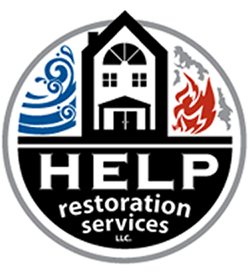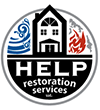When disaster strikes—whether from water, fire, or mold—quick action is critical to protect your home and your health. Our expert restoration team is here to respond immediately, helping you recover from flooding, burst pipes, appliance leaks, smoke damage, and mold outbreaks. We specialize in water damage restoration, mold remediation, and fire damage cleanup, offering full-service solutions that include cleanup, drying, odor removal, structural repairs, and more.
Q: What is water damage restoration?
A: Water damage restoration is the comprehensive process of cleaning, drying, repairing, and restoring areas affected by water intrusion. This damage can result from floods, burst pipes, leaking appliances, roof leaks, sewage backups, or natural disasters. Restoration involves water extraction, dehumidification, sanitation, and repairing or replacing damaged structures like drywall, flooring, and insulation.
Q: How quickly should I respond to water damage?
A: Immediately. Acting within the first 24–48 hours is critical to prevent further damage. Untreated water damage can lead to mold growth, wood rot, electrical hazards, and serious structural issues. Quick action not only reduces repair costs but also improves the chances of salvaging personal property.
Q: Will my insurance cover the damage?
A: In most cases, yes—especially if the damage was sudden and accidental (like a pipe burst). We work with all insurance companies and can manage the entire claims process, from initial inspection and documentation to final repairs. However, damage caused by neglect or lack of maintenance may not be covered, so it’s important to review your policy.
Q: What is mold remediation?
A: Mold remediation is the process of detecting, removing, and treating mold-contaminated areas to eliminate health risks and prevent future outbreaks. This includes using specialized equipment to contain the spread, removing contaminated materials, applying antimicrobial treatments, and sealing surfaces to reduce moisture intrusion.
Q: What areas are usually affected by mold?
A: Mold commonly grows in moist, poorly ventilated areas like kitchens, bathrooms, basements, crawl spaces, and around windows or roofing leaks. It also thrives wherever water damage has gone untreated. HVAC systems can also harbor mold, spreading spores throughout the home.
Q: What should I do if I suspect mold in my home?
A: Avoid disturbing the area, as this can spread spores and worsen contamination. Do not attempt to clean it yourself with household products. Instead, contact a certified mold remediation specialist who can assess the situation and safely remove it using industry-standard protocols.
Q: What services are performed after fire damage?
A: Fire damage restoration begins with a full inspection to assess the extent of the destruction. Services include boarding up and securing the property, removing debris, cleaning soot and smoke residue, deodorizing the space, and restoring structural integrity. We also handle water damage caused by firefighting efforts.
Q: How do you remove the smoke smell?
A: We use specialized equipment such as ozone generators, air scrubbers, and thermal foggers to neutralize smoke odors. All porous and smoke-damaged materials are removed or deeply cleaned. Walls, ceilings, and HVAC ducts are also treated to eliminate lingering smells.
Q: Can your company do the repairs after the damage?
A: Yes, we offer complete reconstruction services to restore your home to its pre-loss condition. This includes drywall replacement, flooring, painting, cabinetry, and even structural rebuilding if necessary. You won’t need to hire multiple contractors—we handle everything from start to finish.
If you have a question that isn’t answered above, please reach out to us.

